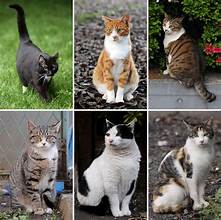How to take care of your cats

Here are some key points about food for cats:
1. Nutritional Requirements:
– Cats are obligate carnivores, which means they require a diet primarily made up of animal protein.
– They need essential nutrients like amino acids, vitamins, minerals, and fatty acids for optimal health.
– A balanced diet is crucial to meet their dietary needs and maintain overall well-being.
2. Types of Cat Food:
– Wet Food: Contains higher moisture content, which helps with hydration. It is closer to a cat’s natural diet and can be more palatable.
– Dry Food: Convenient and has a longer shelf life. It aids in dental health by reducing plaque buildup.
– Raw Food: Some pet owners prefer feeding their cats a raw diet, which mimics their natural eating habits. However, proper handling and preparation are necessary to avoid bacterial contamination.
3. Protein Content:
– Cats require a higher protein content in their diet compared to other animals.
– Animal-based proteins like chicken, turkey, fish, and beef are excellent sources of essential amino acids for cats.
– High-quality commercial cat foods often mention the protein content on their labels, ensuring that your cat gets the necessary nutrients.
4. Avoid Human Food:
– Certain human foods can be toxic to cats, such as onions, garlic, chocolate, caffeine, grapes, and raisins.
– Cats have different digestive systems than humans, and some foods can cause digestive upset or even severe illness.
– It’s best to stick to specially formulated cat food to ensure they receive the correct nutrients in the right proportions.
5. Feeding Schedule:
– Cats should be fed small, frequent meals throughout the day.
– The amount of food required depends on various factors like age, weight, activity level, and overall health.
– Consult your veterinarian for specific feeding guidelines tailored to your cat’s needs.
6. Special Dietary Needs:
– Some cats may have specific dietary requirements due to allergies, sensitivities, or medical conditions.
– Grain-free or limited ingredient diets can be beneficial for cats with food allergies or sensitivities.
– Cats with certain health conditions, like kidney disease or urinary tract issues, may require specialized diets prescribed by a veterinarian.
7. Water Availability:
– Cats should always have access to fresh, clean water.
– Unlike dogs, cats have a lower thirst drive and may not drink enough water, especially if they consume mainly dry food.
– Wet food can help increase their water intake, promoting proper kidney function and preventing dehydration.
Remember, it’s essential to consult with a veterinarian to determine the most suitable diet for your cat based on their unique needs and health status.






